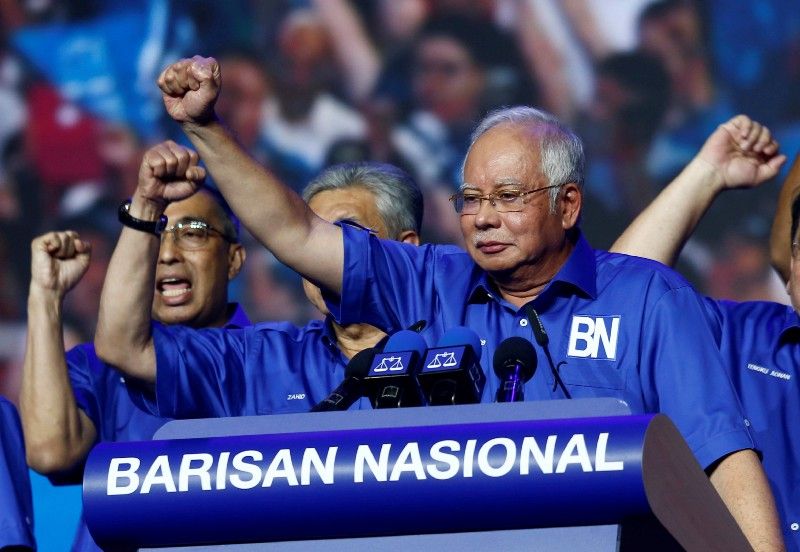April 17, 2018
Malaysia, the advertisement croons softly, it’s truly Asia. The southeast Asian nation’s tourism board has long sold its ethnic mix as one of its most alluring traits. But as the country heads for national elections next month, that diversity has taken on a more divisive quality.
Prime Minister Najib Razak is seeking re-election despite his implication in a billion-dollar graft scandal involving the country’s state development fund. He faces an increasingly firm opposition led by jailed former Prime Minister Anwar Ibrahim and 92-year old former Prime Minister Mahathir Mohamed, the authoritarian “father of modern Malaysia” who was once Najib’s mentor.
Only gerrymandering helped Najib’s UMNO coalition stay in power in 2013, despite losing the popular vote. This time around he’s taking fewer chances. He chose an election date that trims the campaign season to barely a month, giving him maximal advantages. The government has also ordered Mahathir’s party to dissolve, citing a registration technicality.
But most worryingly, Najib has played up the country’s ethnic divisions, pledging to extend affirmative action benefits for the country’s disproportionately poor ethnic Malay majority, and implicitly stoking tensions with a relatively well-off Chinese minority. He has also courted a once-hostile hardline Islamist party in order to profit from the growing appeal of conservative Islam in some parts of the country.
Malaysia’s economic prosperity and relative peace have always been something of an example to its neighbors in Southeast Asia. But as nationalist and sectarian politics begin to stir elsewhere in the region — Indonesia in particular — Najib’s victory may be a bellwether for a different sort of (truly) Asia.
More For You
Most Popular
Think you know what's going on around the world? Here's your chance to prove it.
PA via Reuters Ukraine's Vladyslav Heraskevych, with his helmet, which features pictures of people killed in the war with Russia. Heraskevych was ruled out of the Men's Skeleton event by the International Olympic Committee just over an hour before competition began, pictured at the Cortina Sliding Centre, on day six of the Milano Cortina 2026 Winter Olympics, Italy. Picture date: Thursday February 12, 2026.
20: The number of fallen Ukrainian athletes and coaches depicted on a Ukrainian skeleton racer’s helmet at the Winter Olympics, which prompted the International Olympic Committee (IOC) to disqualify him on Thursday.
Russian President Vladimir Putin attends his annual end-of-year press conference and phone-in in Moscow, Russia December 19, 2025.
Sputnik/Alexander Kazakov/Pool via REUTERS
The Russian government has begun blocking the popular messaging apps WhatsApp and Telegram in a sweeping crackdown aimed at forcing Russians to use a state-backed alternative called MAX, which critics say would enable censorship and surveillance.
© 2025 GZERO Media. All Rights Reserved | A Eurasia Group media company.
